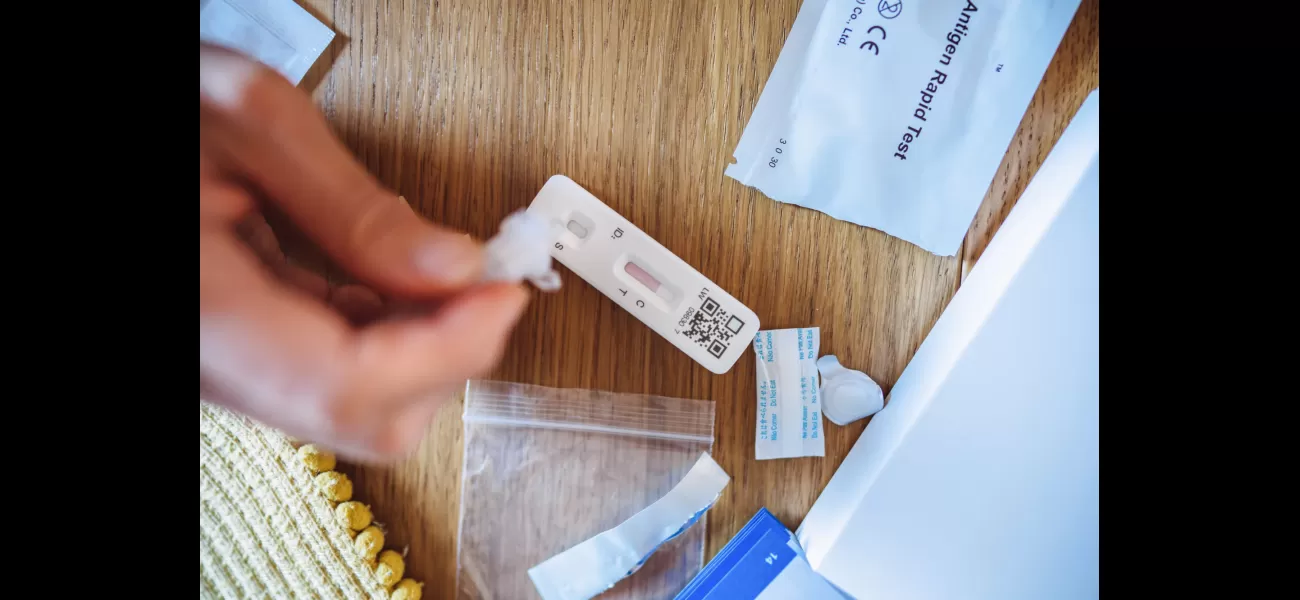Summer brings a new surge of Covid - be aware of the symptoms.
In addition to President Biden, around 40 athletes at the Paris Olympics have contracted the virus.
August 9th 2024.

As we continue to enjoy the summer months, there has been a concerning increase in coronavirus cases. Experts are worried that this wave of infections could worsen as summer progresses. The impact of this virus has been felt worldwide, with even top officials like US President Joe Biden testing positive for it last month. In fact, reports have shown that at least 40 athletes at the Paris Olympic Games have also been infected.
According to data from the World Health Organization, there has been a rise in the percentage of positive tests across 84 countries in recent weeks. In the 28 days leading up to July 21, there were over 155,000 reported Covid-19 cases globally. This is a significant increase of more than 16,000 cases compared to the previous 28 days. The majority of these positive cases can be found in Europe and Russia, with other hotspots emerging in countries like New Zealand, Thailand, China, and Colombia. Within this time frame, Russia reported 22,600 cases, Great Britain had 17,500, Greece had 17,400, New Zealand had 16,900, and Malaysia reported 12,300 cases.
One of the challenges with coronavirus is that its symptoms can easily be mistaken for those of a common cold or flu. Therefore, it is crucial to understand the symptoms and how to treat them. If you have been infected with the virus, it may take up to two weeks for symptoms to appear. These symptoms can range from mild to severe, or you may not experience any at all. Common symptoms include a high temperature or chills, a new continuous cough, a loss or change in sense of smell or taste, shortness of breath, fatigue, body aches, headaches, sore throat, blocked or runny nose, loss of appetite, diarrhea, feeling sick or vomiting.
If you are feeling unwell, it is essential to get tested to determine if you have coronavirus. Treatment for mild symptoms can be managed with over-the-counter medication like paracetamol or ibuprofen. The National Health Service (NHS) advises individuals with a high temperature or those who do not feel well enough to go out, to stay at home and avoid contact with others. Resting and staying hydrated are also crucial in managing symptoms. However, if your symptoms worsen or do not improve after five days, it is recommended to seek an urgent GP appointment or call NHS 111. In severe cases, individuals should go to the emergency room or call 999 if they are experiencing difficulty breathing, coughing up blood, collapsing, having a seizure, or if they have a rash that does not fade when a glass is rolled over it.
According to data from the World Health Organization, there has been a rise in the percentage of positive tests across 84 countries in recent weeks. In the 28 days leading up to July 21, there were over 155,000 reported Covid-19 cases globally. This is a significant increase of more than 16,000 cases compared to the previous 28 days. The majority of these positive cases can be found in Europe and Russia, with other hotspots emerging in countries like New Zealand, Thailand, China, and Colombia. Within this time frame, Russia reported 22,600 cases, Great Britain had 17,500, Greece had 17,400, New Zealand had 16,900, and Malaysia reported 12,300 cases.
One of the challenges with coronavirus is that its symptoms can easily be mistaken for those of a common cold or flu. Therefore, it is crucial to understand the symptoms and how to treat them. If you have been infected with the virus, it may take up to two weeks for symptoms to appear. These symptoms can range from mild to severe, or you may not experience any at all. Common symptoms include a high temperature or chills, a new continuous cough, a loss or change in sense of smell or taste, shortness of breath, fatigue, body aches, headaches, sore throat, blocked or runny nose, loss of appetite, diarrhea, feeling sick or vomiting.
If you are feeling unwell, it is essential to get tested to determine if you have coronavirus. Treatment for mild symptoms can be managed with over-the-counter medication like paracetamol or ibuprofen. The National Health Service (NHS) advises individuals with a high temperature or those who do not feel well enough to go out, to stay at home and avoid contact with others. Resting and staying hydrated are also crucial in managing symptoms. However, if your symptoms worsen or do not improve after five days, it is recommended to seek an urgent GP appointment or call NHS 111. In severe cases, individuals should go to the emergency room or call 999 if they are experiencing difficulty breathing, coughing up blood, collapsing, having a seizure, or if they have a rash that does not fade when a glass is rolled over it.
[This article has been trending online recently and has been generated with AI. Your feed is customized.]
[Generative AI is experimental.]
0
0
Submit Comment





